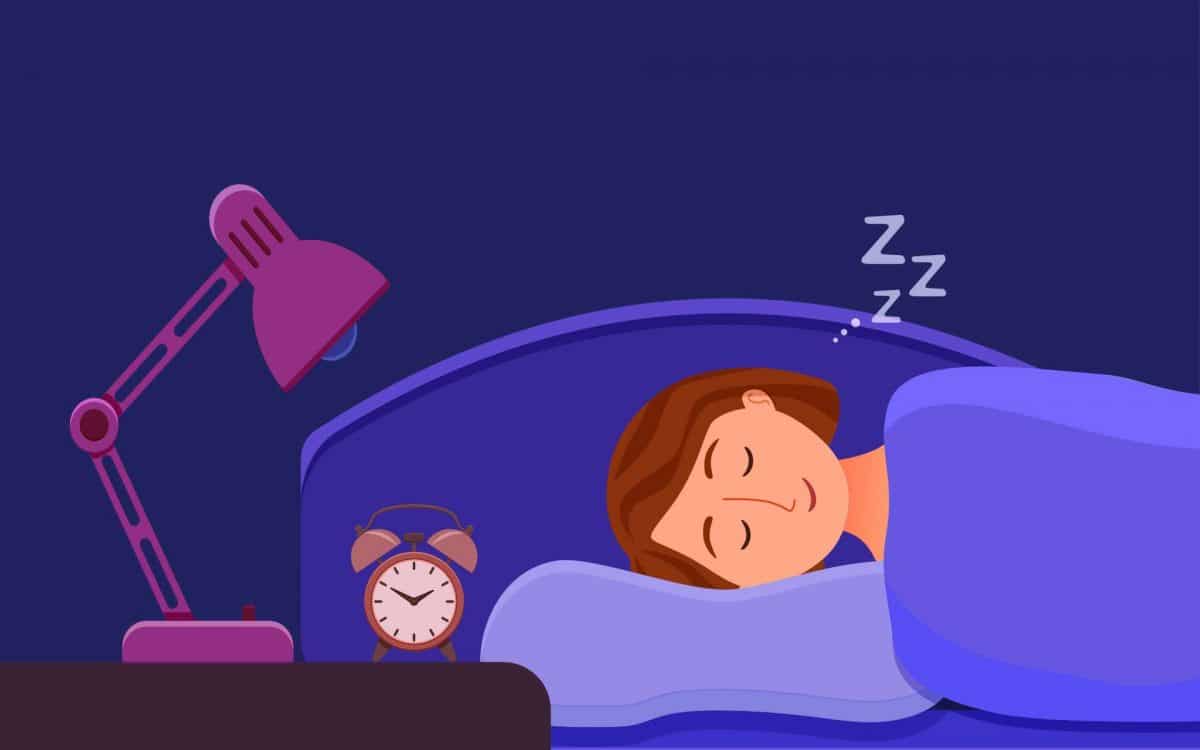Sleep plays an important role in activating cognitive functions and maintaining good psychological health. It also helps keep the brain healthy by eliminating waste.
As we age, we often notice alterations in our sleep patterns. Including difficulty falling asleep and staying asleep. As well as a decrease in the quantity and quality of sleep.
These sleep disturbances are thought to contribute to cognitive decline and psychiatric disorders in the aging population.

Test on nearly 500,000 adults
In research published today in Nature Aging, scientists from the UK and China looked at data from nearly 500,000 adults aged 38-73 from the UK Biobank.
The participants were asked about their sleep habits. As well as their mental health and well-being. They participated in a series of cognitive tests. Brain imaging and genetic data were available for almost 40,000 of the study participants.
Sleeping too little or too much, impaired cognitive performance
By analyzing this data, the team found that both insufficient and excessive sleep durations were associated with impaired cognitive performance. Such as processing speed, visual attention, memory, and problem-solving abilities.
Seven hours of sleep per night was the optimal amount of sleep for cognitive performance. But also for good mental health. For people experiencing symptoms of anxiety and depression. But general well-being worsened if they reported sleeping for longer or shorter durations.

Sleep disturbances
The researchers say that one possible reason for the association between insufficient sleep and cognitive decline may be due to the disruption of slow-wave – “deep” sleep.
Disruption of this type of sleep has been shown to be closely linked to memory consolidation as well as amyloid buildup. A key protein that when misfolded can cause tangles in the brain. Characteristics of certain forms of dementia.
Additionally, lack of sleep can hamper the brain’s ability to get rid of toxins.
The team also found a link between the amount of sleep and differences in the structure of brain regions involved in cognitive processing and memory. Again with larger changes associated with more or less than seven hours of sleep.

Obter for consistent sleep
Getting a consistent seven hours of sleep each night, without too many fluctuations in duration, was also important for cognitive performance and good mental health and well-being.
Previous studies have also shown that interrupted sleep patterns are associated with increased inflammation. Indicating susceptibility to age-related diseases in the elderly.
Professor Jianfeng Feng from Fudan University in China said: “Although we cannot say conclusively that too little or too much sleep causes cognitive problems. Our analysis of individuals over a longer period seems to support this idea. »
“But the reasons why older people sleep less appear to be complex, influenced by a combination of our genetic makeup and the structure of our brains. »

Risk of aging-related cognitive decline
The researchers say the findings suggest that getting too little or too much sleep may be a risk factor for aging-related cognitive decline.
This is supported by previous studies that have reported a link between sleep duration and the risk of developing Alzheimer’s disease and dementia. In which cognitive decline is a characteristic symptom.
Professor Barbara Sahakian from the University of Cambridge’s Department of Psychiatry, one of the study’s authors, said: « Getting a good night’s sleep is important at all stages of life, but particularly as we’re getting old. »
“Finding ways to improve sleep in older adults could be crucial in helping them maintain good mental health. In addition, to avoid cognitive decline, especially for patients with psychiatric disorders and dementias. »
